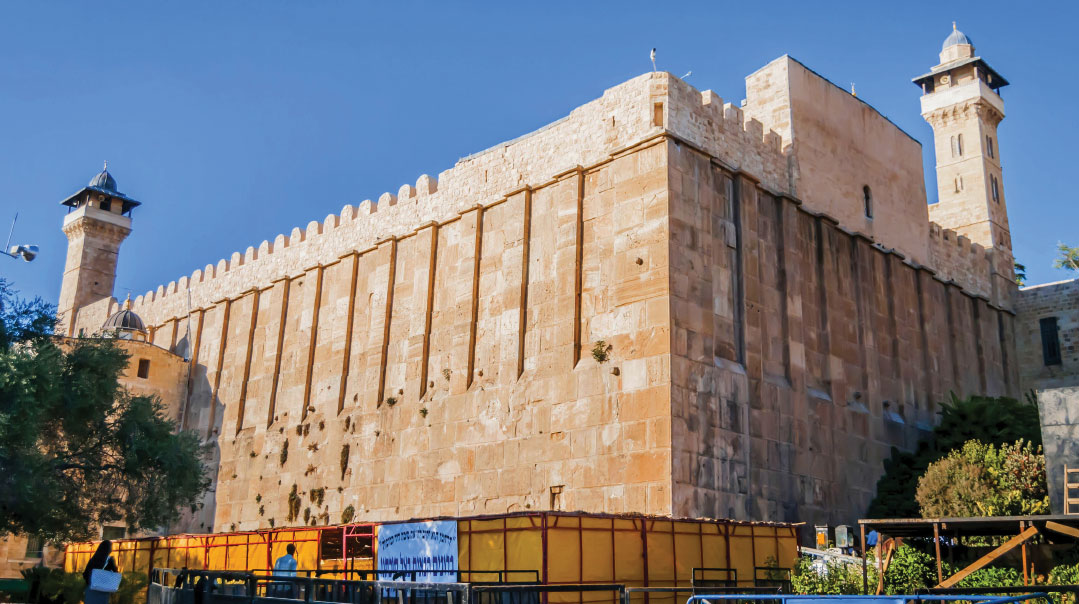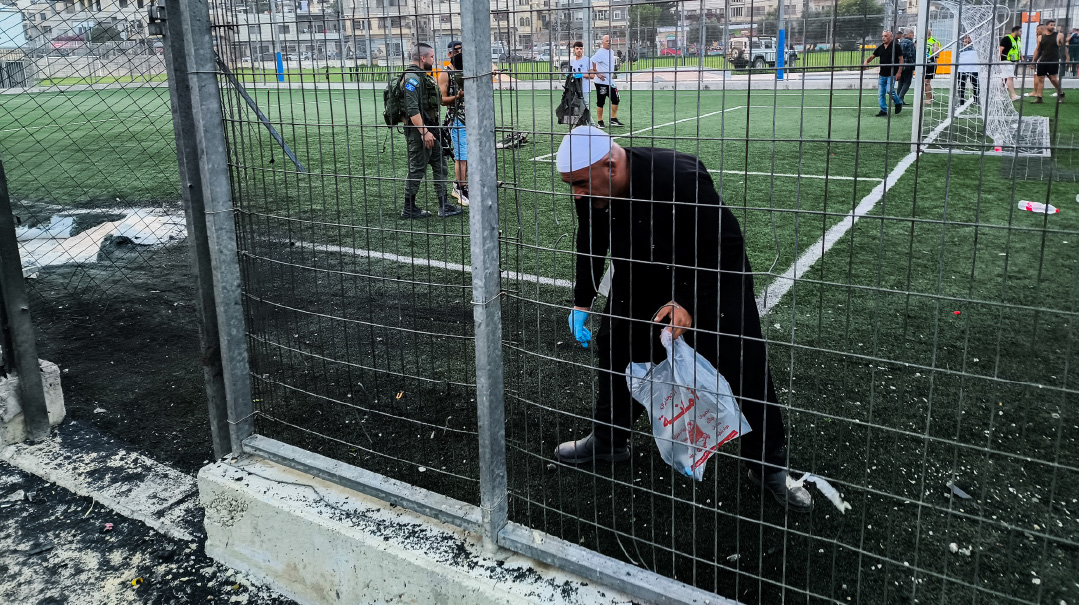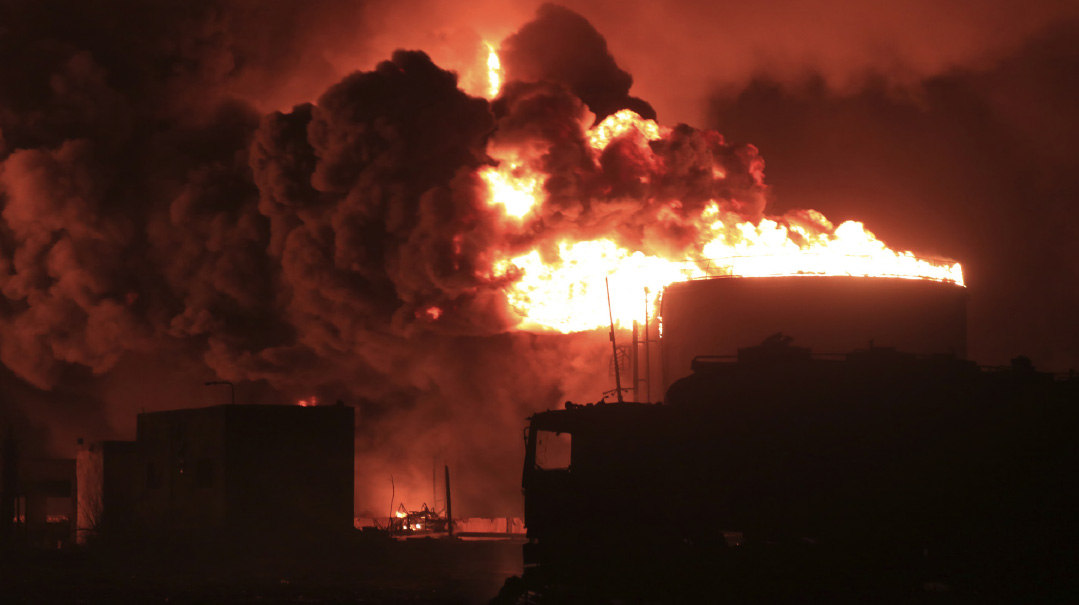On the Land of Our Fathers


This week, after a decades-long struggle, Defense Minister Naftali Bennett ordered army and civilian officials to notify the Chevron municipality that a new Jewish neighborhood will be built on the site of a former wholesale market.
For years, the Israeli government delayed reclaiming parts of Jewish-owned Chevron — including the market — out of fear of international retribution. Jews were initially forced from the land after the Chevron Riots of 1929 and then again in 1948.
The new neighborhood will be located between Mearas Hamachpeilah and the Avraham Avinu neighborhood, and double the number of Jewish residents in the city. The plan entails the destruction of the current wholesale market and the construction of new stores and buildings.
The land on which the wholesale market sits was purchased by the Magen Avot Sephardi Kollel in 1807. The area remained in Jewish hands until the riots of 1929, in which almost 70 Jews were killed and the entire community was exiled.
Descendants of the original owners later returned to claim the land and make sure it was still registered in the name of the Sephardic community. Other Jewish property in the area was also confirmed.
But after Israel’s War of Independence in 1948, the land was appropriated (some would say plundered), by King Hussein of Jordan. In 1960, he ordered the construction of an Arab market on the site. After the 1967 Six Day War, the area returned to Israeli control, but though the land was legally owned by Jews and there were documents to prove it, the government allowed the Palestinian municipality of Chevron to continue operating the market. In 1994, the market was closed over security concerns and a new one was built to serve city’s residents.
Though the market has been abandoned for 25 years, the land was never restored to the Jewish community of Chevron, which now numbers about 1,000 people. Community leaders repeatedly urged the Israeli government to return the land, but the government vacillated.
Then, in 2006, the case landed on the desk of then-attorney general Menachem Mazuz (currently a justice of the Supreme Court), who entrusted it to attorney Michael Belz, then deputy attorney general, and considered an expert in administrative matters.
Belz’s 2006 opinion killed all hopes that the land might be restored to its rightful owners. Belz argued that the agreement by which the market was leased to the Palestinian municipality made it a “protected tenancy,” meaning the contract could never be revoked.
The legal turnabout came in November 2018, when Attorney General Avichai Mandleblit approved the opinion of Itay Ophir, the defense establishment’s legal advisor, who ruled that the protected tenancy had expired with the construction of the new market in the western part of Chevron. Therefore, Israeli construction could be permitted on the site of the buildings looted in 1929.
Mandleblit advised the civil administration to inform the Palestinian municipality that their protected tenancy had expired. At the same time, in a gesture of goodwill, Arab merchants will be allowed to operate stores on the ground floor of the market while the upper stories will be available for Jewish development. Mandleblit added that if the Chevron municipality objects, the entire area would be claimed as Jewish property, since the local government has no real legal claim to the land.
But from the day Mandleblit announced his decision until last Sunday, the Israeli government failed to act, frustrating the Jewish community. They claim that the mayor of Chevron, Tayseer Abu Sneineh, controls the area.
“The mayor of Chevron is nothing but a murderer,” says one Jewish resident, noting that the mayor was part of a gang convicted of killing six Jews in Chevron in 1980; he was later released in a prisoner swap in 1985. “He bragged about his murderous activities during his election campaign and that’s how he became mayor.”
This past Sunday, Bennett finally ordered the implementation of the Mandelblit decision. Noam Arnon, a veteran Jewish resident of Chevron, and the community’s official spokesman, told Mishpacha that the decision is “great news for Am Yisrael.”
“We’ve waited many years for this announcement,” he said. “We have a terrible housing crisis here in Chevron. There’s also the unbearable injustice of the murderers who drove the Jews away in 1929. The time has come for justice and for Jewish construction on the land.”
But despite this, Bennett did stipulate that the Palestinian municipality will retain ownership on the ground level of the market.
“That’s because the Israeli legal system hasn’t yet reached a point where it can bring itself to do real justice. But better partial justice than none at all.”
How many new apartments will be built in the area?
“We’re talking about dozens of new apartments for the Jewish settlement. It’s an area of four to five dunams [about one acre, or 4,000 square meters].”
Will anyone with money be able to buy the property or are there special conditions?
“It’s too early to know. Now we’re entering the planning phase. It will be at least two or three years before the apartments are actually built. Meanwhile I have no doubt we’ll have leftist lobby groups appealing to the Supreme Court to stop the construction. On the other hand, if we don’t begin, construction will never finish. We’ll start acting based on Bennett’s orders and then we’ll see.”
Did the Trump administration’s announcement that it doesn’t regard the settlements as illegal have some influence on this decision?
“That’s certainly possible. It could be that the reason the government delayed this decision so long was their fear of the Americans. Now that the American administration recognizes the legality of the Jewish presence in Judea and Samaria, we can assume that played a decisive role in the defense minister’s decision.”
It sounds to me like you are a bit skeptical that the construction will actually take place …
“I’m not at all belittling the importance of the decision. An addition of dozens of Jewish families to the settlement of Chevron is ‘mei’ein Olam Haba.’ ‘Hayinu k’cholmim.’ But I’m also realistic. You asked about the timetable, when will there be apartments. I don’t live under the illusion that certain bodies will let us build here without fighting tooth and nail over every little detail. I believe that the Jewish settlement in Chevron is destined to grow. Will it happen in the near future? That I can’t be sure of. But I’d be very happy to be wrong, to see the decision implemented and construction go ahead.”
(Originally featured in Mishpacha, Issue 788)
Oops! We could not locate your form.







